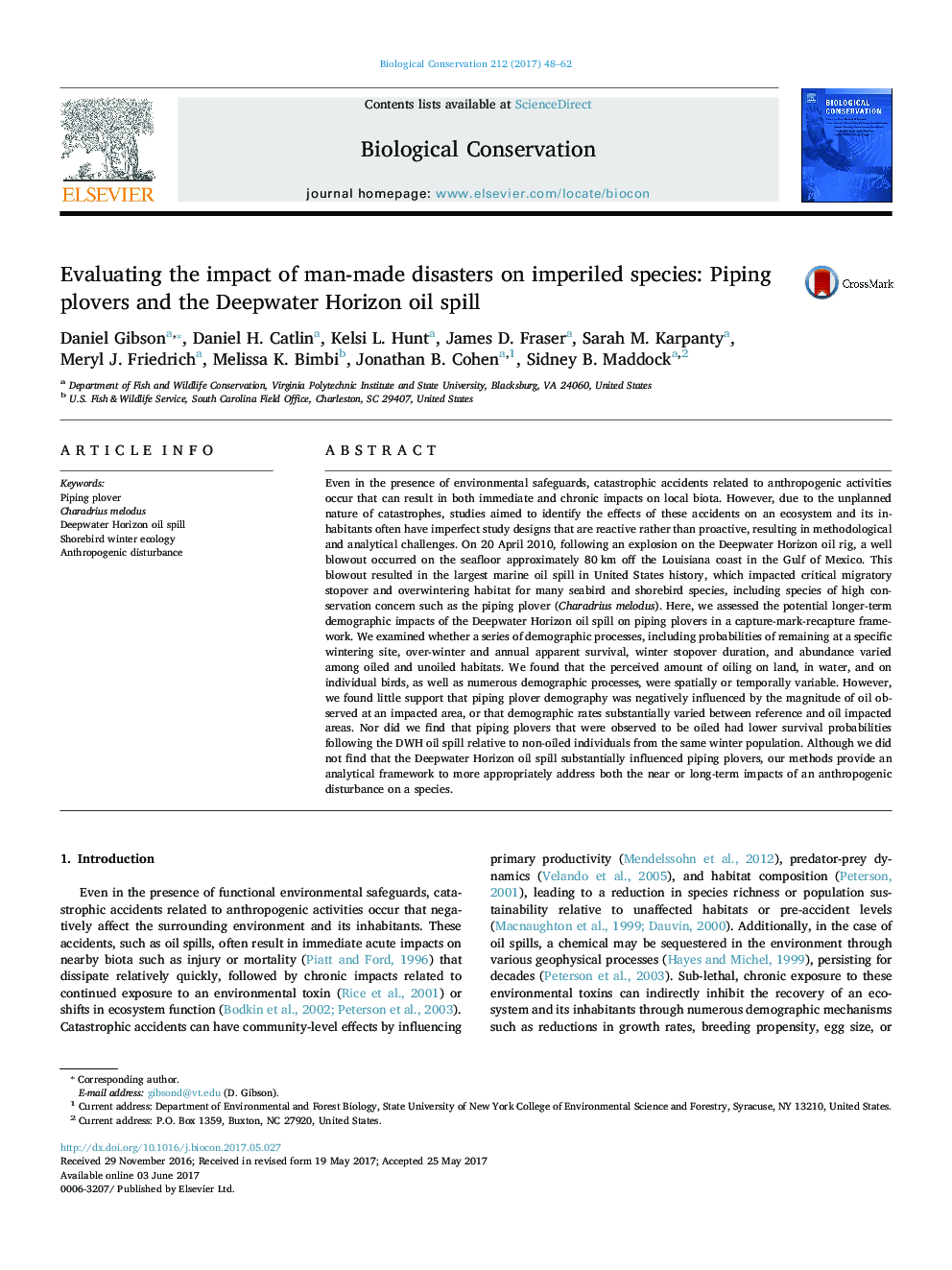| کد مقاله | کد نشریه | سال انتشار | مقاله انگلیسی | نسخه تمام متن |
|---|---|---|---|---|
| 5743090 | 1412296 | 2017 | 15 صفحه PDF | دانلود رایگان |

Even in the presence of environmental safeguards, catastrophic accidents related to anthropogenic activities occur that can result in both immediate and chronic impacts on local biota. However, due to the unplanned nature of catastrophes, studies aimed to identify the effects of these accidents on an ecosystem and its inhabitants often have imperfect study designs that are reactive rather than proactive, resulting in methodological and analytical challenges. On 20 April 2010, following an explosion on the Deepwater Horizon oil rig, a well blowout occurred on the seafloor approximately 80Â km off the Louisiana coast in the Gulf of Mexico. This blowout resulted in the largest marine oil spill in United States history, which impacted critical migratory stopover and overwintering habitat for many seabird and shorebird species, including species of high conservation concern such as the piping plover (Charadrius melodus). Here, we assessed the potential longer-term demographic impacts of the Deepwater Horizon oil spill on piping plovers in a capture-mark-recapture framework. We examined whether a series of demographic processes, including probabilities of remaining at a specific wintering site, over-winter and annual apparent survival, winter stopover duration, and abundance varied among oiled and unoiled habitats. We found that the perceived amount of oiling on land, in water, and on individual birds, as well as numerous demographic processes, were spatially or temporally variable. However, we found little support that piping plover demography was negatively influenced by the magnitude of oil observed at an impacted area, or that demographic rates substantially varied between reference and oil impacted areas. Nor did we find that piping plovers that were observed to be oiled had lower survival probabilities following the DWH oil spill relative to non-oiled individuals from the same winter population. Although we did not find that the Deepwater Horizon oil spill substantially influenced piping plovers, our methods provide an analytical framework to more appropriately address both the near or long-term impacts of an anthropogenic disturbance on a species.
Journal: Biological Conservation - Volume 212, Part A, August 2017, Pages 48-62